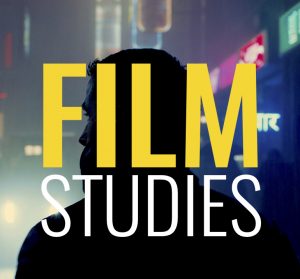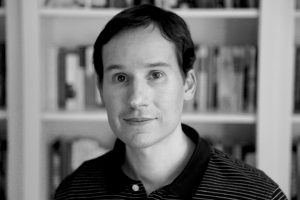Associate Professor
 Department of English & Comparative Literature
Department of English & Comparative Literature
Director, Film Studies
University of North Carolina at Chapel Hill
BIOGRAPHY

As Director of the Film Studies program, I oversee the Film Studies Concentration in the Department of English and Comparative Literature, as well as the Global Cinema Minor. I earned my PhD in English, with Certificate in Film Studies, at the University of Pittsburgh. I also hold an MA in Film Studies from Emory University. Before coming to UNC, I was a visiting lecturer at Carnegie Mellon University and the University of Pennsylvania.
My work investigates the history of film style in a global context. I am especially interested in the aesthetic and sensory dimensions of the film-viewing experience. Indeed, much of my research considers how films address, involve, and challenge the spectator. While I also write about (and teach) popular films, I am drawn to experimental styles of filmmaking that put our habits of thought and perception under strain.
My latest book, The Rebirth of Suspense: Slowness and Atmosphere in Cinema (forthcoming from Columbia University Press), offers a fundamental redefinition of suspense by turning to an unlikely source: slow-paced, minimalistic art films, where the suspense emerges in primarily atmospheric terms. Global in scope, this book puts forth a new theory, history, typology, and analysis of suspense as it operates at a remove from the familiar Hitchcockian paradigm that has dominated understandings of suspense in film studies. Instead of limiting suspense to the questions of what will happen next in the plot and what will befall the characters with whom we are psychologically aligned, I bring to light how suspense takes hold of the spectator through far subtler forms of atmospheric enthrallment and perceptual restriction, amid circumstances of extreme narrative sparseness and temporal delay. In short, this book supplies a more versatile and nuanced vocabulary for studying an aesthetic phenomenon that remains central to the power of the film medium. My case studies include films by Chantal Akerman, Apichatpong Weerasethakul, Pedro Costa, Kelly Reichardt, Lucrecia Martel, Jonathan Glazer, Lisandro Alonso, Kiyoshi Kurosawa, and David Lynch.
In my field, I am also known partly for my work on the French-Swiss director Jean-Luc Godard and his relationship to the essay film, an intellectual genre that developed in the wake of World War II. My book, Godard and the Essay Film: A Form That Thinks, examines the topic at length through a study of Godard’s films, television series, and videos made from the 1960s to the 2010s. The book comparatively engages the styles of other film essayists, such as Orson Welles, Harun Farocki, Agnès Varda, Chris Marker, and Guy Debord. It might outwardly seem that the subjects of my two books–suspense and the essay form–have little to do with one another, but they are both idioms of uncertainty, the one more affective and atmospheric, and the other more reflective and philosophical.
Areas of interest and expertise also include classical and post-classical American cinema; global art cinema; film performance; horror and thriller genres; the history of film theory; the transition from photochemical to digital film; and film’s cross-media relations with literature, photography, and painting.
My essays have also appeared in several edited collections, as well as in peer-reviewed journals such as New Review of Film & Television Studies, Quarterly Review of Film & Video, Adaptation, Critical Inquiry, Critical Quarterly, Journal of Popular Film & Television, Post Script: Essays in Film & the Humanities, Studies in World Cinema, South Atlantic Review, and more. I frequently present research at international conferences, and I have been invited to give talks and participate in symposia at the Whitney Humanities Center (Yale University), the University of Maryland, the Penn Humanities Forum, and the Slought Foundation.
My research projects and methods directly inform my teaching. I provide a wide range of courses, oscillating between historical surveys of different national and transnational cinemas, intensive studies of multiple genres and traditions, film theory surveys, and courses devoted to particular filmmakers and their influence. Whatever their topic, my courses show students how to write about films with precision, clarity, and nuance. My aim is not merely to expand their knowledge but also to improve their audiovisual literacy, honing their sensitivity to how film and television participate in larger intellectual, cultural, and political debates. As a founding editor, I oversee Aspect: Journal of Film and Screen Media, which highlights some of the best writing produced by our undergraduate film students.
The graduate students I supervise have focused on an array of dissertation topics, from the essay film and documentary to women-directed horror and postcolonial North African films. I administer a graduate student edition of the Triangle Film Salon, which gives our graduate students a forum within which to share their research with their peers and faculty.
My public engagement includes serving as a faculty consultant for Film Fest 919 and for the Chelsea Theater. With Allison Portnow Lathrop of the Ackland Art Museum, I program semester-long film series that are open to students, faculty, and the general public. As a member of the Arts Everywhere Campus Arts Council, I am committed to improving the local film culture, and to using the power of film to strengthen community ties between UNC and the town of Chapel Hill.
AWARDS, FELLOWSHIPS & GRANTS
Chapman Family Teaching Award, 2022
Johnston Teaching Excellence Award, 2020
Schwab Academic Excellence Award, Institute for the Arts & Humanities, 2018
Summer Faculty Fellowship, Institute for the Arts & Humanities, 2022-27
Institute for the Arts & Humanities Faculty Fellowship, Fall 2015
Andrew W. Mellon Postdoctoral Fellowship, Annual Penn Humanities Forum, University of Pennsylvania, 2011-12
Andrew W. Mellon Dissertation Fellowship, 2009-10
Richard Tobias Dissertation Fellowship, 2008-09
Best Graduate Essay in Film Studies, University of Pittsburgh, 2005, 2007
Carolina Asia Center Grant, 2020
University of Pittsburgh Center for International Studies Travel Grant, 2006
PRINCIPAL EXPERTISE & INTERESTS
Film aesthetics / film history, in particular European, North American, East Asian / film theory / genre studies, in particular horror, thriller, dark comedy / sound studies / avant-garde cinema / documentary and essay film / performance / media studies / film in relation to other arts